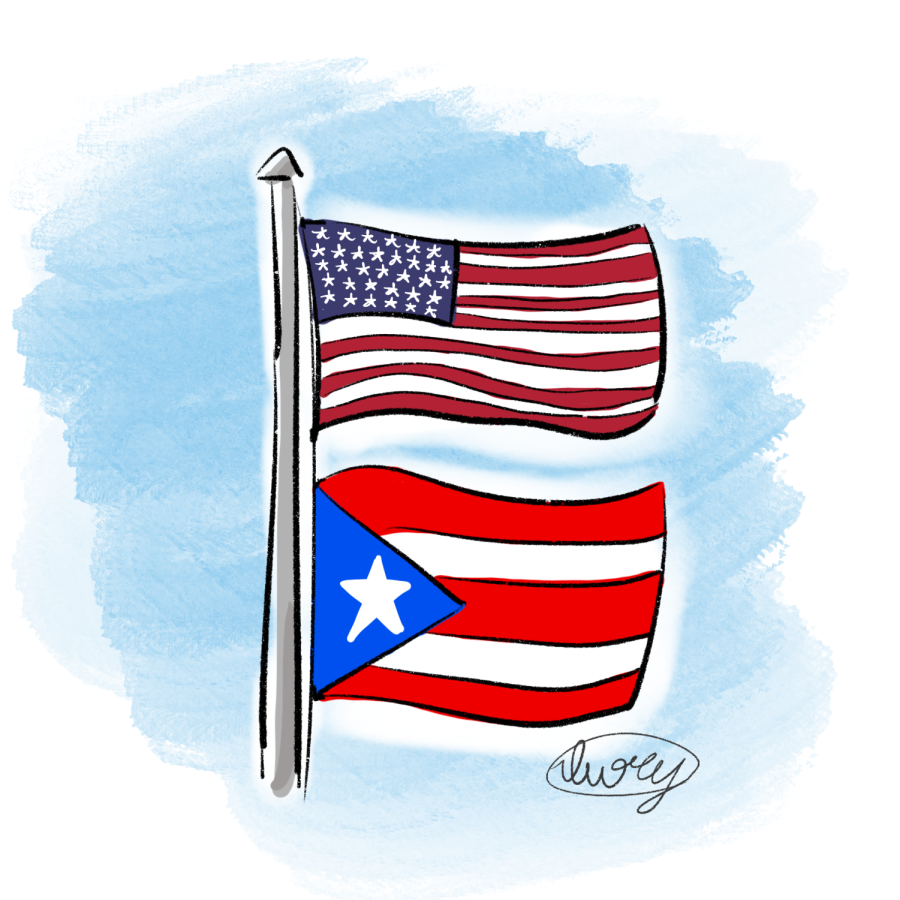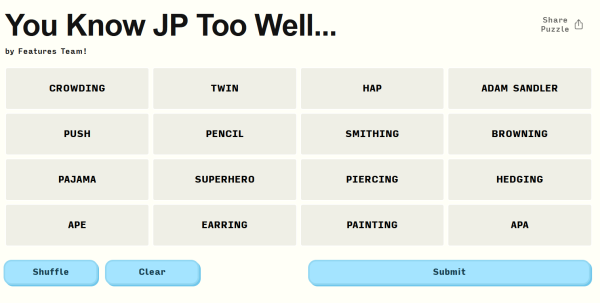The Case for a 51st State
¡Hacia un futuro unido!
February 16, 2023
For many decades, the people of Puerto Rico have been denied the rights and representation to which every American is entitled. Currently, Puerto Rico is under the jurisdiction of the United States, but its residents, albeit U.S. citizens, are not represented at the polls since they are barred from voting and denied access to certain federal programs. However, the future may be brighter: the bipartisan House of Representatives has voted to allow Puerto Ricans to decide the status of the territory. Although such a development does not promise any immediate change, it shows that the narrative surrounding the political state of Puerto Rico is now changing. Now, more than ever, it is imperative that the inhabitants of Puerto Rico are granted the representation they have long deserved, giving them an opportunity to feel emotionally and financially connected to their government.
In order to feel a connection to their government, Puerto Ricans should be given the chance to vote for the leaders who represent them and their ideals, especially because they are subject to all the laws of the land. The three million residents of Puerto Rico have long been deprived of the opportunity to determine their own political future and play a role in the democratic process. Ricardo A. Rosselló, former Governor of Puerto Rico, discusses the aftermath of Hurricane Maria, which hit the island in 2017: “the island of nearly 3.5 million people—it would be the 30th largest state by population—would have fared much better with full representation in Congress and the right of residents to vote for president.” He continued his sentiments with the belief that Puerto Ricans were treated as “an afterthought” due to the lack of political power, alluding to the United States government’s poor aid response.
Puerto Rico currently has a non-voting representative in Congress and no senators, meaning the island has very little influence in the United States government’s decision-making processes. Should it become a state, Puerto Rico would have two senators and several representatives, giving it a stronger voice in national politics. Being granted independence—or, at the very least, the choice to decide what exactly to do with the territory—would allow Puerto Ricans to make their own decisions, for the first time in hundreds of years, about the trajectory of their lives. Decolonization of Puerto Rico can only be achieved by giving its residents the right to full political representation and acceptance into the United States.
In theory, the United States is committed to providing equal opportunities for all its citizens. In practice, however, this is not necessarily true for Puerto Ricans who are ineligible for government programs despite their citizenship status. In order to live up to its word, the government should acknowledge Puerto Rico as a state. If this were the case, Puerto Rico would be eligible for a wider range of federal programs and funding, which could help stimulate the island’s precarious economy and create new jobs. Statehood would provide a more predictable business environment in which its residents could thrive, attracting new businesses and investors to Puerto Rico to bolster the island’s unstable economy, especially after the debt crisis of 2016. The Council on Foreign Relations projects that the island could receive “up to $12.5 billion more in federal benefits, including Medicare and Medicaid.” Furthermore, if the proposed statehood were approved, Puerto Rico would be deemed eligible for D-SNAP, which is the special food stamp program for disaster victims, as explained by The Puerto Rico Statehood Council. It is time the residents of Puerto Rico were acknowledged for who they are: U.S. citizens. This would only be possible if they are recognized as such by the very government that rules over them, and it all starts by being granted full representation in the U.S. legislature, with the ability to vote on laws that affect Puerto Rico.
There still remain many unanswered questions regarding the ramifications of Puerto Rico’s admission into the Union. It is imperative that the U.S. abolishes any act of colonialism that it has historically been associated with. However, the statehood of Puerto Rico should be viewed as not only a matter of justice and equality, but also as a stride towards a stronger, more unified nation.









































